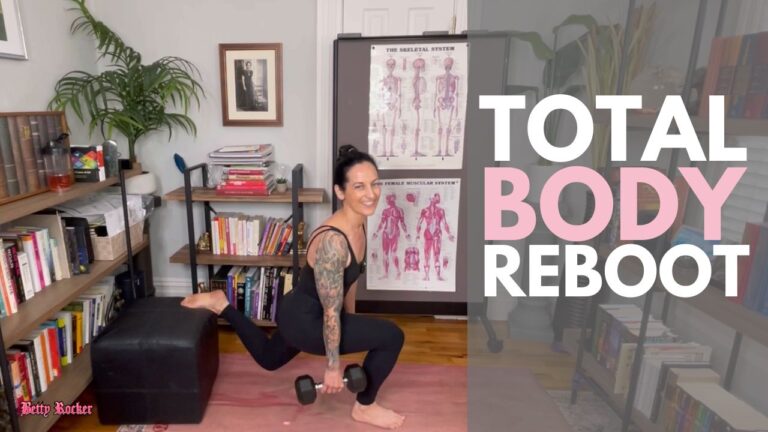
Over the last several years, CVS Health has grown into much more than just the corner retail pharmacy that consumers have historically known it as.
In 2018, the Woonsocket, Rhode Island-based company bought its insurance arm Aetna for about $70 billion. Then in 2023, it purchased both home care company Signify Health and primary care company Oak Street Health for $8 billion and $10.6 billion, respectively. CVS also owns one of the largest pharmacy benefit managers in the country — CVS Caremark. All this is in addition to operating more than 9,000 pharmacy locations across the country.
The rationale for integrating these businesses was to both improve efficiency and maximize profit, according to Dr. Adam Brown, an emergency physician and founder of healthcare advisory firm ABIG Health. However, this seems to be proving difficult, as the healthcare giant is reportedly exploring breaking up its retail and insurance units, Reuters reported earlier this month. Retailers have been struggling in healthcare recently, though some experts still believe that CVS is a frontrunner.
On Friday, CVS Health also announced that Karen Lynch has been replaced as CEO by David Joyner, who was most recently executive vice president of CVS Health and president of CVS Caremark.
“The Board believes this is the right time to make a change, and we are confident that David is the right person to lead our company for the benefit of all stakeholders, including customers, employees, patients, and shareholders,” said Roger Farah, executive chairman of the company.
The rumors of a potential breakup aren’t entirely surprising as the company faces numerous headwinds. That said, Brown isn’t sure a break up would be the best idea for the company.
“If they were to separate, the fundamentals of the market are still [that] companies do better as they integrate their value chains,” he said. “We’re seeing it all across healthcare. So they would in some sense be an outlier by trying to reverse the trend. … The question is, are the investors looking for a quick sell off to bring profitability back into the organization, or bring capital back into the organization?”
He added that while splitting up may be a short term solution, it may not help the company long term.
A spokesperson for the company — David Whitrap, vice president of external affairs — said that “CVS Health’s management team and Board of Directors are continually exploring ways to create shareholder value.” He added that the company remains “focused on driving performance and delivering high quality healthcare products and services enabled by our unmatched scale and integrated model.”
The headwinds
CVS Health is facing a multitude of headwinds. Medicare Advantage, which is a big part of CVS Health’s business, is experiencing an increase in utilization that has been cutting into profitability. CVS’ pharmacies are facing competition from companies like Amazon and Mark Cuban’s Cost Plus Drugs. In addition, PBMs are seeing increased scrutiny from the federal government, and the FTC recently sued the top three — including CVS Caremark — over insulin prices.
And CVS isn’t alone in battling headwinds. UnitedHealthcare, Cigna and Walgreens are also battling challenges.
“Everyone in this space is having the same pressures,” said Dr. Robert Pearl, former CEO of the Permanente Medical Group and current professor at Stanford University School of Medicine and Stanford Graduate School of Business, as well as a healthcare author and podcaster. “What businesses normally would do is they would pivot and focus on the areas of great profitability when they have headwinds in other areas, but there is no place for them to find refuge from the storm because no part of their business right now is soaring. They’re not in Gen AI, they’re not in GLP-1s. They’re not in the places where all the profits are in healthcare. They’re sitting in the place where all the headwinds are.”
Brown echoed Pearl, noting that a lot of CVS’ challenges come from Medicare Advantage, which touches Aetna, Oak Street Health and Caremark. In 2024, CVS made a strategic decision to focus on adding more seniors into its Medicare Advantage product, but more people are utilizing healthcare services than the company anticipated.
“As the utilization went up, the profit margins went down,” Brown stated. “The goal of a Medicare Advantage program is to not only get revenues through increasing the number of people that are signing up into their programs, but also to reduce their utilization, so that they’re keeping the savings as profitability.”
In the company’s last earnings call on August 7, executives repeatedly pointed to pressures on the Medicare Advantage business promising that it will see better margins in 2025, according to a transcript of the call.
“In June, we submitted our bids for the 2025 Medicare Advantage plan,” said Karen Lynch, CEO of CVS Health, in the earnings call. “Our bids went through a rigorous internal review and we are confident in our pricing for 2025, which reflects prudent assumptions for utilization trends. The actions we took are expected to drive 100 to 200 basis points of margin recovery in 2025 off of our current baseline and start the multi-year pathway to achieving target margins of 4% to 5%.”
As mentioned previously, the headwinds aren’t only tied to Medicare Advantage. In its quest to become a healthcare juggernaut, CVS made an acquisition in senior primary care. And one healthcare expert said that in doing so, it overpaid for Oak Street Health when it shelled out $10.6 billion. The primary care company would likely be worth around $2 or $3 billion now, according to Ari Gottlieb, principal of A2 Strategy Corp. With the exception of Astrana — a company that helps providers engage in value-based care — a lot of risk-bearing primary care businesses have been hurt by V28, CMS’ new Hierarchical Condition Categories model that began in 2024 and is being phased in over three years. It changes the way Medicare Advantage risk adjustment scores are calculated.
“Oak Street is going to be a continued drain on the balance sheet,” Gottlieb declared.
Will CVS break up given the challenges?
It’s hard to say for sure if CVS Health will actually break apart, especially when there doesn’t seem to be an easy way to separate the pieces. This is particularly true when it comes to CVS Caremark, as the PBM is beneficial for both the retail pharmacy side of the business and the insurance and care delivery side of the business, according to Pearl.
“So they’re stuck, and that’s why, in the end, I don’t think they know what they’re going to do, but they’re going to contemplate it,” Pearl said. “And if they can find a good way to split into two pieces without having one of the pieces suffer severe financial challenges, they might do it.”
But Pearl also hedged his bets.
He believes the company likely won’t be able to find a simple way to break up and therefore, probably won’t. He added that breaking apart wouldn’t really solve the company’s problems and would “give up an opportunity for synergy,” though it would maybe save some money in the short run to appease shareholders.
By contrast, Gottlieb said that the cleanest way to break apart CVS Health would probably be by separating the retail pharmacy business and the insurance business, but also questioned where the PBM business, Caremark, would go. When asked if he thinks the company should break apart, he responded that CVS needs “to do something,” and a place to start would be selling off Oak Street Health and Signify. He added that Aetna’s business will probably be the easiest to turn around by increasing prices and reducing benefits.
Ultimately, however, discussions around breaking apart is likely due to pressure from investors, according to Brown. He said that investors and boards typically like to see decisions made that will affect the next quarter. It’s also worth noting that CVS has made cuts in some other ways, including recently announcing layoffs of about 2,900 employees.
“This may be an investor push because Oak Street Health has not done as well as hoped,” he said. “There have also been immediate concerns about the Medicare Advantage market and how utilization is affecting profitability. … So a potential of breaking apart, selling off a piece of the company may have a short term win, but in the long term, it may not be a benefit to the company.”
It appears that even experts — Brown, Pearl and Gottlieb —are split on the potential for splitting.
Editor’s Note: This story has been updated to include CVS Health’s Friday news of a leadership change.
Photo: sdecoret, Getty Images




